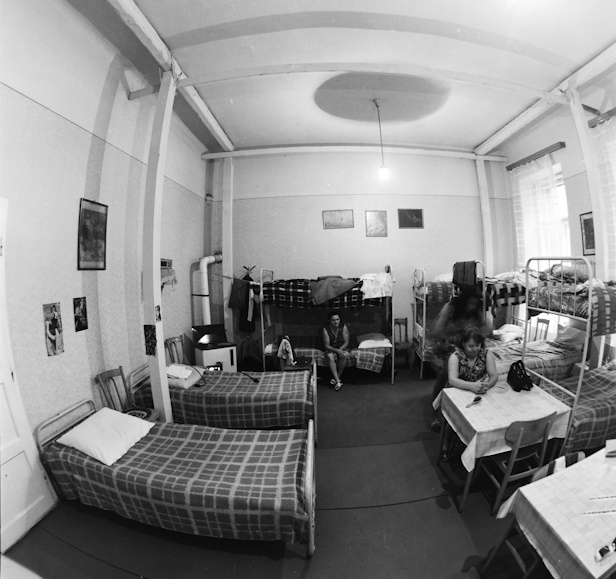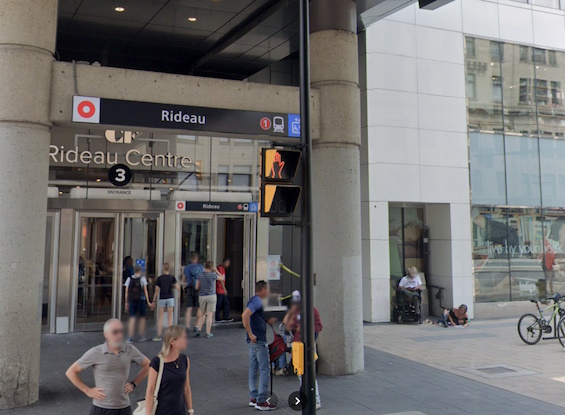Allow me to let my imagination go wild.
Imagine a country in which access to health care — basic health care, no fancy machines, but competent, well-trained professionals — is easy. Want to see a cardiologist? Go to the local clinic, cardiology is on the third floor to the left, present your ID card and within 30 minutes, an assistant will call you by name and you’re talking to a cardiologist. Or any other specialist, for that matter. Oh, and if your child is sick, the pediatrician will make house calls. Free of charge, as all of this is covered by the public health insurance system.
Imagine emergency services that work. An ambulance system that, barring large-scale natural disasters, does not know the meaning of “level zero”. Emergency rooms that always have the capacity, at least in normal times, to quickly process patients and accommodate them.
Imagine hospitals that are well staffed and have surplus capacity. In particular, imagine mental hospitals that host many mental patients, including patients who, though not raving lunatics, are nonetheless incapable, for one reason or another, of leading proper lives independently, and would end up homeless, crippled with addictions or worse, if they were not institutionalized.
Imagine a country with no real homelessness. Sure, if you are in dire straits, you may not be able to find luxury accommodations, but you’ll not be left outside: If nothing else, a shared room will be available in a workers’ hostel or dormitory, with a bed and a wardrobe that you can call your own, but eventually, you might be able to get at least a tiny apartment, not much, just a bedroom, a toilet, a shower and a cooking stove, but still. Your place. One that will not be taken away so long as you pay the subsidized rent and don’t exhibit outrageous behavior.

Female dormitory at a downtown Budapest hostel for construction workers.
Fortepan / Peter Horvath, 1982
Imagine a merit-based system of tertiary education that does not cost a penny. Institutions that teach valuable skills in the sciences, engineering and the arts, not made-up diplomas that exist only to serve some ideological or political agenda. Institutions that kick you out if you do not meet minimum criteria, fail your exams, fail to complete your assignments.
Imagine a cheap public transit system that… just works. Reliably. The subway runs 20 hours a day, with all maintenance done, properly completed, during the overnight hours. Buses and trams arriving on time, a system only interrupted on rare occasions by major weather events or large accidents.
A pipe dream, you say? Maybe… except that what I am describing is the reality in which I grew up, in the goulash communism of behind-the-Iron-Curtain Hungary.
To be sure, things didn’t always work as advertised. There was no homelessness epidemic, but young people often ended up paying through the nose to live in sublet properties, often just a bedroom in someone else’s apartment. The health care system was nominally free, but people felt obligated to pay real money, a “gratitude”, under the table to compensate severely underpaid doctors and other health care professionals.
No, I do not want to pretend that life under communism was great. After all, I “voted with my feet”, leaving behind my country of birth, opting to begin a new life starting with nothing other than the contents of my travel bag and a few hundred dollars in my wallet in 1986. Nonetheless, my description of Kadar-era everyday life in Hungary reflects the truth. That really is the way the health care system, public housing, public transportation or tertiary education simply worked. Worked so well, in fact, we took them for granted.
The fact that these things today, in the capital city of a G7 country, namely Ottawa, Canada, are much more like pipe dreams, much farther away in reality than in Kadar’s communist dictatorship 50 years ago…

Homeless couple in recessed side entrance of Ottawa’s Rideau Centre.
Google Street View, July 2023
The mind boggles. Seriously, what the bleep is wrong with us?
“What is wrong with us?” – I often think the same! My childhood only intersected with brief tail of Soviet era – but still I recollect this time with positive nostalgy. We were limited in access to fancy clothes and luxury cars – and only 3 channels in TV – but it seems we had something in exchange. Not only immaterial things, but it is also about various social aspects. Free education and healthcare as an example (not only free, but there were impressive payments to students who performed well/excellent – up to 1/3 of the engineer’s salary). Surely there were many things going somewhat wrong, at least from our modern perspective. But let’s regard this as a experiment. That failed.
Why and how we lost it, or rather give it up? Swapped this all for iPhones and Gucci? Or perhaps for Freedom? It is only tip of the iceberg I guess.
Seemingly humanity need to reach certain level of wisdom, of compassion, of readiness to give up some of our wealth, our toils, our freedom – to help others, to share our total gains. We also need to learn how to aim great goals probably.
We are taught that Freedom is of greatest value. But who will tell us that Responsibility is perhaps greater? Who will teach kids in school they could not feel completely free and happy when their neighbor is starving, wretched and ill.
“And the multitude of them that believed were of one heart and of one soul: neither said any of them that ought of the things which he possessed was his own; but they had all things common.” (Acts 4:32)
It looks like communism was invented even long before Marx :) But both he and Luke the author of Acts seemingly hint that it is a matter of evolution of human conscience.
Regretfully it looks that in sense of conscience we did little evolution. Comparing with times of Moses some 3000+ years ago – we now have cars and private jets instead of donkeys and camels – but we did little progress in treating each other. Same wars (perhaps more bloody), poverty in whole countries (accompanied with diseases, hardships, lack of education etc), at which we close our eyes.
Oh, sorry for that many letter. It’s a sensitive topic. Well. Still perhaps it may be nice to visit Belarus or China until they broke :)
P.S. Hungarian buses back in 1980s were quite impressive to us, boys.
I don’t want to sound too nostalgic when it comes to communism. It was, after all, as you put it a failed experiment. It failed in part because a planned economy is a rigid economy, lacking flexibility, lacking the agility, ability to adapt. Deng got this bit right in China: You can have a strong system of social institutions and still offer freedom of enterprise and a market economy. Yet Deng, too, was committed to maintaining the system as a repressive police state. A police state can do wonders if it’s headed by a benevolent dictator. But what if the dictator goes mad? Or replaced by a less benevolent autocrat, like Xi? Again, these systems hold within themselves the seeds of their own destruction, since they lack essential checks and balances.
This is why I grudgingly accept Western-style democracy as, to paraphrase Churchill, the worst system possible, until you consider the alternatives. However, precisely because it is a democracy, we should feel free to criticize it, point out its shortcomings, and demand change when necessary. And if it turns out that something was done better, more efficiently in a communist regime, rather than rejecting it, it should be viewed as an opportunity for us to learn and improve.
Yes, those Ikarus buses were pretty good. Imagine my surprise when I arrived in Canada in 1987 as a freshly minted landed immigrant and one of the first things I saw were… you guessed it, articulated Ikarus buses, in service throughout the city. See https://en.wikipedia.org/wiki/Orion-Ikarus_286 .